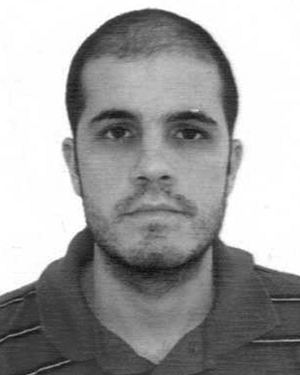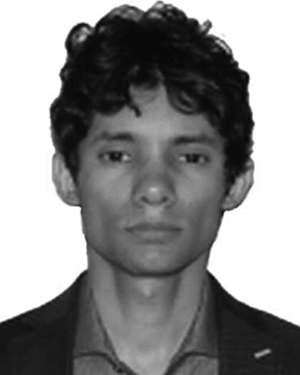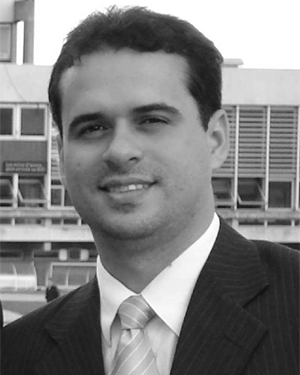Abstract:
Currently, the differential function is the most used for the power transformer protection, leading to a reliable discrimination between internal faults and other events....Show MoreMetadata
Abstract:
Currently, the differential function is the most used for the power transformer protection, leading to a reliable discrimination between internal faults and other events. However, the conventional phasor-based differential protection function presents difficulties in the detection of some internal faults and its performance depends on the harmonic restraint and blocking functions in order to avoid relay misoperation during inrush currents. However, internal faults and other disturbances present transient, which can be properly detected by using the wavelet transform. This paper recreates the phase current and the negative-sequence current differential elements by means of the boundary wavelet coefficient energy. The proposed method was evaluated by using representative simulations of internal faults, external faults, and transformer energizations in two different power systems. By using the boundary wavelet coefficient energy instead of phasor estimation, the proposed method was quite fast, accurate, was not affected by inrush currents in transformer energizations and fault clearance, and could be used in a real-time application with low computational burden. In addition, the proposed method presented no failure in fault with overdamped transients, was scarcely affected by the choice of the mother wavelet, presented no time delay associated with the wavelet filtering, and was not affected by typical noise.
Published in: IEEE Transactions on Power Delivery ( Volume: 31, Issue: 5, October 2016)

Federal University of Rio Grande do Norte, Campus Universitário Lagoa Nova, Natal, RN, Brazil
R. P. Medeiros received the B.Sc., and M.Sc. degrees in electrical engineering from Federal University of Rio Grande do Norte (UFRN), Natal, Brazil, in 2012 and 2014, respectively, where he is currently pursuing the Ph.D. degree.
His research interests are power quality and power system protection by using the wavelet transform.
R. P. Medeiros received the B.Sc., and M.Sc. degrees in electrical engineering from Federal University of Rio Grande do Norte (UFRN), Natal, Brazil, in 2012 and 2014, respectively, where he is currently pursuing the Ph.D. degree.
His research interests are power quality and power system protection by using the wavelet transform.View more

Federal University of Rio Grande do Norte, Campus Universitário Lagoa Nova, Natal, RN, Brazil
F. B. Costa (S’05–M’10) received the B.Sc., M.Sc., and Ph.D. degrees in electrical engineering from Federal University of Campina Grande (UFCG), Campina Grande, Brazil, in 2005, 2006, and 2010, respectively.
Currently, he is a Professor at Federal University of Rio Grande do Norte (UFRN)—School of Science and Technology (ECT), Natal, Brazil. He was a Postdoctoral Researcher with UFCG in 2010; a Visiting Researcher at K.U. ...Show More
F. B. Costa (S’05–M’10) received the B.Sc., M.Sc., and Ph.D. degrees in electrical engineering from Federal University of Campina Grande (UFCG), Campina Grande, Brazil, in 2005, 2006, and 2010, respectively.
Currently, he is a Professor at Federal University of Rio Grande do Norte (UFRN)—School of Science and Technology (ECT), Natal, Brazil. He was a Postdoctoral Researcher with UFCG in 2010; a Visiting Researcher at K.U. ...View more

University of Brası´lia, Brası´lia, DF, Brazil
K. M. Silva (M’05) was born in Brazil in 1980. He received the B.Sc., M.Sc., and Ph.D. degrees in electrical engineering from University of Campina Grande (UFCG), Campina Grande, Brazil, in 2004, 2005, and 2009, respectively.
Currently, he is an Adjunct Professor in the Department of Electrical Engineering at the University of Braslia (UnB), Brasília-DF, Brazil. His research interests focus on power system protection and e...Show More
K. M. Silva (M’05) was born in Brazil in 1980. He received the B.Sc., M.Sc., and Ph.D. degrees in electrical engineering from University of Campina Grande (UFCG), Campina Grande, Brazil, in 2004, 2005, and 2009, respectively.
Currently, he is an Adjunct Professor in the Department of Electrical Engineering at the University of Braslia (UnB), Brasília-DF, Brazil. His research interests focus on power system protection and e...View more

Federal University of Rio Grande do Norte, Campus Universitário Lagoa Nova, Natal, RN, Brazil
R. P. Medeiros received the B.Sc., and M.Sc. degrees in electrical engineering from Federal University of Rio Grande do Norte (UFRN), Natal, Brazil, in 2012 and 2014, respectively, where he is currently pursuing the Ph.D. degree.
His research interests are power quality and power system protection by using the wavelet transform.
R. P. Medeiros received the B.Sc., and M.Sc. degrees in electrical engineering from Federal University of Rio Grande do Norte (UFRN), Natal, Brazil, in 2012 and 2014, respectively, where he is currently pursuing the Ph.D. degree.
His research interests are power quality and power system protection by using the wavelet transform.View more

Federal University of Rio Grande do Norte, Campus Universitário Lagoa Nova, Natal, RN, Brazil
F. B. Costa (S’05–M’10) received the B.Sc., M.Sc., and Ph.D. degrees in electrical engineering from Federal University of Campina Grande (UFCG), Campina Grande, Brazil, in 2005, 2006, and 2010, respectively.
Currently, he is a Professor at Federal University of Rio Grande do Norte (UFRN)—School of Science and Technology (ECT), Natal, Brazil. He was a Postdoctoral Researcher with UFCG in 2010; a Visiting Researcher at K.U. Leuven, Leuven, Belgium, in 2011–2012; a Visiting Researcher with INESC-Porto, Porto, Portugal, in 2014; and a Postdoctoral Researcher with RWTH Aachen University, Aachen, Germany, in 2014–2015. Currently, he conducts research on power system protection, electric power quality, control of renewable energy systems, as well as smart-grid solutions.
F. B. Costa (S’05–M’10) received the B.Sc., M.Sc., and Ph.D. degrees in electrical engineering from Federal University of Campina Grande (UFCG), Campina Grande, Brazil, in 2005, 2006, and 2010, respectively.
Currently, he is a Professor at Federal University of Rio Grande do Norte (UFRN)—School of Science and Technology (ECT), Natal, Brazil. He was a Postdoctoral Researcher with UFCG in 2010; a Visiting Researcher at K.U. Leuven, Leuven, Belgium, in 2011–2012; a Visiting Researcher with INESC-Porto, Porto, Portugal, in 2014; and a Postdoctoral Researcher with RWTH Aachen University, Aachen, Germany, in 2014–2015. Currently, he conducts research on power system protection, electric power quality, control of renewable energy systems, as well as smart-grid solutions.View more

University of Brası´lia, Brası´lia, DF, Brazil
K. M. Silva (M’05) was born in Brazil in 1980. He received the B.Sc., M.Sc., and Ph.D. degrees in electrical engineering from University of Campina Grande (UFCG), Campina Grande, Brazil, in 2004, 2005, and 2009, respectively.
Currently, he is an Adjunct Professor in the Department of Electrical Engineering at the University of Braslia (UnB), Brasília-DF, Brazil. His research interests focus on power system protection and electromagnetic transients.
K. M. Silva (M’05) was born in Brazil in 1980. He received the B.Sc., M.Sc., and Ph.D. degrees in electrical engineering from University of Campina Grande (UFCG), Campina Grande, Brazil, in 2004, 2005, and 2009, respectively.
Currently, he is an Adjunct Professor in the Department of Electrical Engineering at the University of Braslia (UnB), Brasília-DF, Brazil. His research interests focus on power system protection and electromagnetic transients.View more


